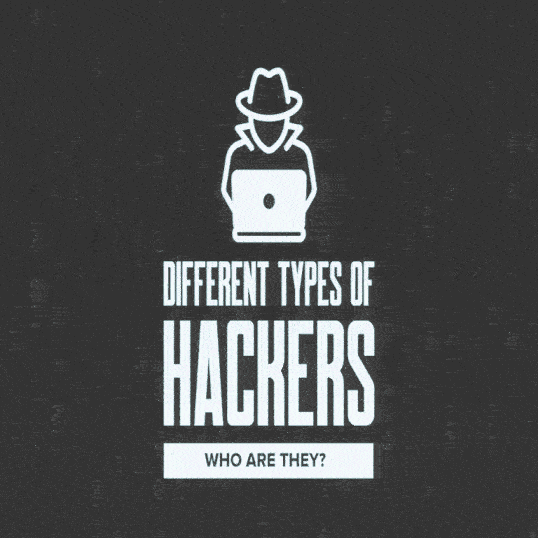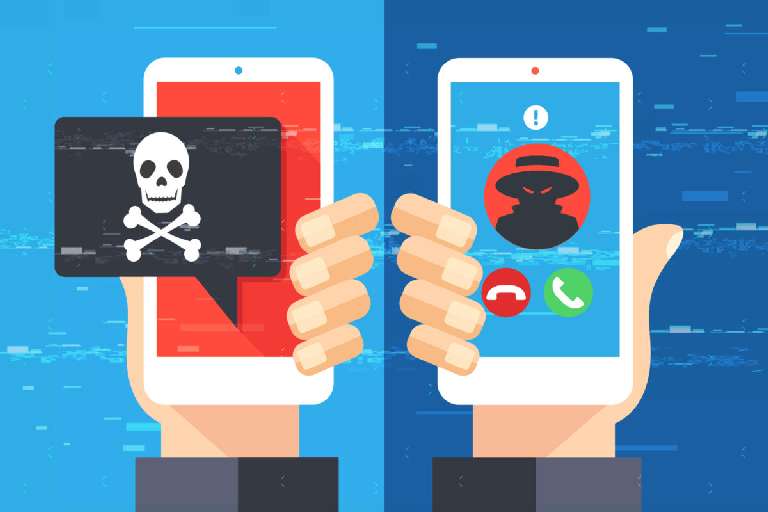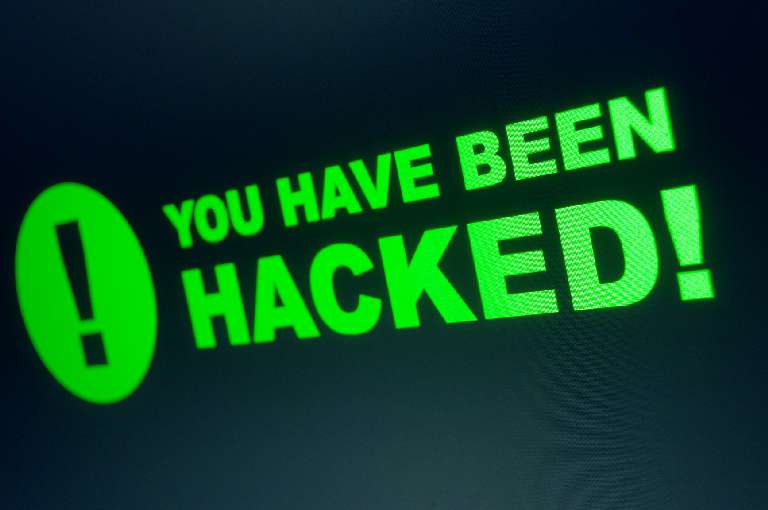Hackers: How to Identify Them and Avoid Being Attacked
Fiction, the media, and events that have occurred in recent decades have created a universe full of ambiguity around the term hacker. There are millions of people in the world who associate it with a malicious meaning, linked to illegal activities. In this guide, we’ll help you know who are hackers, how you can identify them, and avoid being attacked by a hacker.
The reality is that not all hackers are dedicated to stealing information or destroying companies. In fact, the internet, the World Wide Web, the first video game, Linux, and many programming codes used on a daily basis, was created by the first people to call themselves hackers, at the Massachusetts Institute of Technology (MIT) in the United States.
But there are many that have led to computer attacks on companies with the aim of infecting their computers with viruses, hijacking, stealing, or deleting information. By owning an SME, our dreams, effort, and capital are devoted to it; so protecting her from any danger becomes a mission. Therefore, it is necessary to know them, what are their types, how hackers operate, how they can create a security protocol, and how to react to a cyber attack.
What is a hacker?
The term is used to refer to an expert in the technological area who uses his knowledge in programming to find the vulnerabilities that a system has. Commonly, these obstacles arise around the security of the systems.

Although social stigma predisposes hackers to work solely for profit, their motivations can range from solving problems for others, engaging in activism, protesting, or simply overcoming challenges, as a way to have fun by testing their skills.
The most recognized hackers worldwide are those dedicated to computer security; These are the ones in charge of looking for the smallest and weakest link within a technological system, to be able to jump their security.
The first meaning given to the term is linked to the Computer Hacker, which is a person who uses his abilities to illegally access third-party computer systems, with the purpose of obtaining confidential information or misappropriating them. While the second meaning refers to computer experts who use their knowledge to develop techniques capable of improving security systems.
How can the same term have such different meanings? Easy, there are different types of hackers, which act according to their own ideals, needs, and criteria. As entrepreneurs, knowing the various types of hackers is extremely important, since it can make the difference between acting in a possible state of compromised security.

Types of hackers
The types of hackers go beyond heroes and villains, the passage of time and the accelerated evolution of humanity, have made the motivations of hackers fragment them into categories. Next, we will present the main ones:
- White Hat: they are ethics hackers, they usually work for the government, financial, or companies entities. Your job is to find potentially vulnerable holes and fix system failures, a safety net. Faced with possible attacks on these entities, they are in charge of protection, for this reason in large corporations usually have the services of at least one.
- Black Hat: or crackers, use their skills to break security systems and penetrate restricted areas, appropriating identities, documentation, private information or simply corrupting a system. To do this, they can use endless techniques such as infecting networks, creating viruses, violating protocols, among others.
- Gray Hat: they are those who, using black hat techniques, seek to solve problems for profit, that is, even if they break into security systems with illegal methods, but their intentions are “good”. Some penetrate the security of companies to demonstrate how vulnerable their systems are, then offer their services to solve these problems.
- Golden Hat: is one that tests a system created by himself or by the company for which he works. Its purpose is to notify the vulnerability that the computer system presents and to solve it.
- Blue Hat: they are hackers who work in computer consulting, providing their services by checking the security flaws or errors that a system may present before its release to the public.
- Hacktivist: It refers to hackers who, through technological means, carry out acts of activism on political, ideological, or social issues. The greatest example is presented by the group Anonymous.
- Newbie: they usually lack great skills and seek to obtain benefits without having the knowledge to do so. Within this group are newbies with little knowledge of hacking.
- Script-kiddie: who do not have great technical skills and who commit cybervandalism as a way to profit.
Computer attacks on companies: Risk factors
Currently, incidents involving the hijacking of information have become an epidemic that affects a large number of companies around the world. Generally, the objective pursued by black hat hackers is to obtain a lucrative goal. The damages that companies usually suffer after a cyber attack can be: financial fraud, damage to reputation, theft of intellectual property, data destruction, information hijacking, loss of productivity, and business interruption.
Even when you have large security systems, and have emergency protocols or white hats carrying out protection tasks, the possibility of being victims exists. For this reason, large companies such as Apple, Google, or Facebook have suffered the theft of valuable information. One of the most talked-about in recent years has been that of Yahoo! Who suffered from the assault of the personal information of more than 500 million users, or Uber who recently reported that 57 million users should take precautionary measures with their personal accounts.
Although some attacks are directly committed by hackers, it sometimes happens that, due to the carelessness of the employees, they fall into traps. Among the most common we have: web defacement, links that promise to win a prize by clicking, scams such as “you won a million dollars! Write your financial information to send you the money ”better known as phishing, Trojans, malware, viruses, theft or poisoning of cookies, keylogger, among many others and each not with a special intention.
The reality is that no one is completely safe from hackers and although we are all potentially vulnerable, we can take a series of measures to prevent attacks and that is what we will discuss below:

How to prevent hacker attacks? Protection factors
It is a fact that most companies have protocols in place for security, related to natural disasters, robberies, or catastrophic situations in general. But few have protocols for cyber attacks. Every corporation, enterprise, or business that works thanks to an online system must have and follow a business security protocol, designed to protect and prevent a possible cyber attack.
The highest percentage of computer attacks on companies are carried out when they lack a good security protocol, which is why below, we will present a series of recommendations that will help increase security in a company’s computer systems:
- Corporate education: to protect data there must be a concern that comes from management and includes all staff in general. Workers must be educated not to skip safety and security protocols.
- Realism: there is no 100% secure system, so it is essential that the company identify weak links and take actions to reduce possible risks.
- Crisis management: have action protocols and strategies to respond and act in the event of possible computer incidents. In companies that handle customer information, their protocols should include how to communicate with each one that their information has been compromised and what action they can take.
- Transparency: when a security breach occurs, notify those affected so that they can take the appropriate measures and protect their information.
- Legal advice: consult with a lawyer, the laws according to the country regarding the negotiation with hackers, and the consequences of accepting their conditions. We recommend going to the authorities.
- Common sense: Many computer incidents are generated by carelessness or lack of knowledge, bad practices, navigation in potentially dangerous sites, the innocence of users, or lack of protection programs, which can be risk factors. Corporate education is essential for staff to be prepared, so it is essential that management take the necessary precautions.
As many of the incidents that occur in companies are generated by carelessness, to avoid these inconveniences, it is essential that certain criteria of prevention and protection against possible threats are met. Some of them are:
- Avoid visiting potentially dangerous websites: pornographic ones, for example, are known to host large amounts of malicious software.
- Avoid downloading from unknown sources: they should always be done from reliable sites, otherwise, the door is being left open to let information pass directly to our computer.
- Be attentive to links: before clicking on a link, place the cursor over it, to verify that the URL is the same where you want to go.
- Use several passwords: it is sensible to think that our networks, communication channels, health, and finances should have different passwords since we could minimize the damage.
- Create smart passwords: To create a smart password, we recommend long and unusual phrases, supplemented by a few numbers and symbols. Additionally, we can change the passwords every 6 months, it is an annoying but necessary task.
- Eliminate sensitive information: many times we send financial information or personal data by email, these are stored and become points of attack. For what we suggest, delete old emails or any information that may turn out to be very personal.
- Downloading, Updating, and Using Antivirus and Antimalware Software: They won’t solve all problems, but they will provide an extra layer of protection. Although they generally do not provide protection against new attacks, they can detect information spoofing, suspicious activities, rootkies, traces, among others.
- Two-Step Authentication: After entering the username/password combination, they will need to take another action. This action is usually to enter a valid one-time code, which has been sent to your mobile device, or to enter a previously generated code.

I have been hacked! And now what do I do?
A study carried out by the company Cybersecurity Ventures indicates that an attack occurs every 14 seconds, what does this mean? That if we count all types of cyber attacks that exist, it would show that approximately up to 10 cyberattacks are carried out per second. If you have been the victim of one, let’s follow these tips:
- Keep calm; take a moment to breathe deeply and empty your mind. They will need to be calm and focused to be able to execute their security protocols and make pertinent decisions regarding how to act.
- Execute the crisis management plan, if there is a security protocol against cyberattacks.
- Report the attack to the security organs of the country. Provide them with the information they request, or provide additional information such as the IP of the place where the attack came from.
- Run virus or malware protection programs; If the problem is due to an infected file, scanning with software can help find and remove them.
- Change passwords and activate two-step verifications, access accounts from a computer that is not infected, and reset passwords with security protocols.
- Hire the services of a hat; if you are willing to pay your fees.
- Do not allow the company to go bankrupt, in a situation of this caliber, many entrepreneurs decide to close their doors, they are years of hard work so it is better to recover from situations of this type.
Although the probabilities of being victims of a cyberattack are so high, it is worth having crisis management protocols that allow us to get out of hand in difficult situations. Safety issues are extremely sensitive and must be handled with great care.
The reality is that many times we do not know what hackers do to access our information, but we do not need to know how an earthquake occurs to have a contingency plan, right? That is why, given the lack of knowledge of how hackers operate, the best way to proceed is with caution.